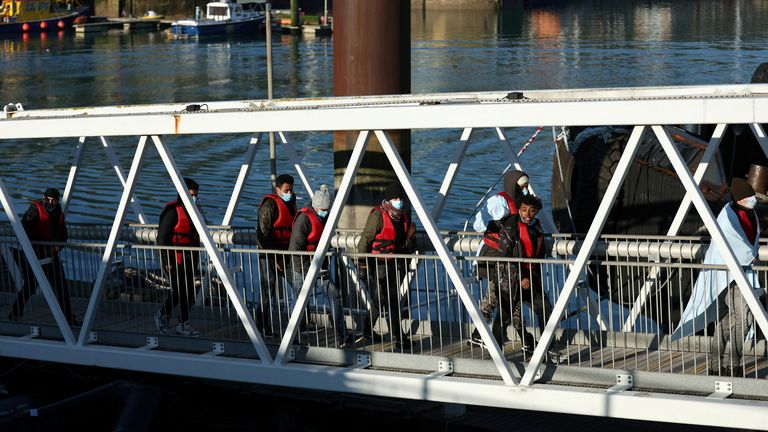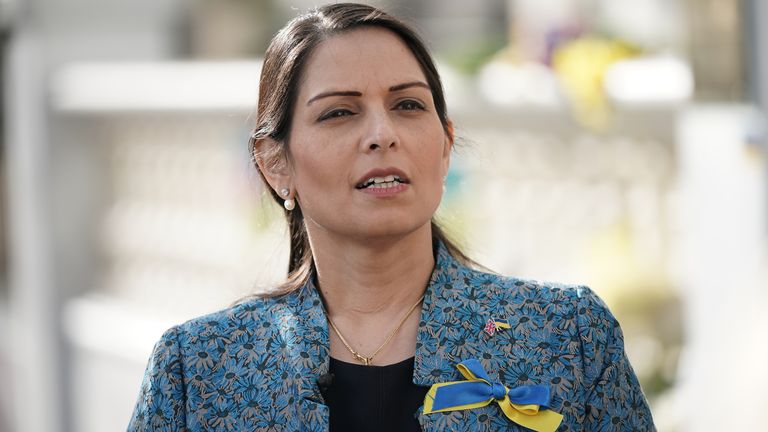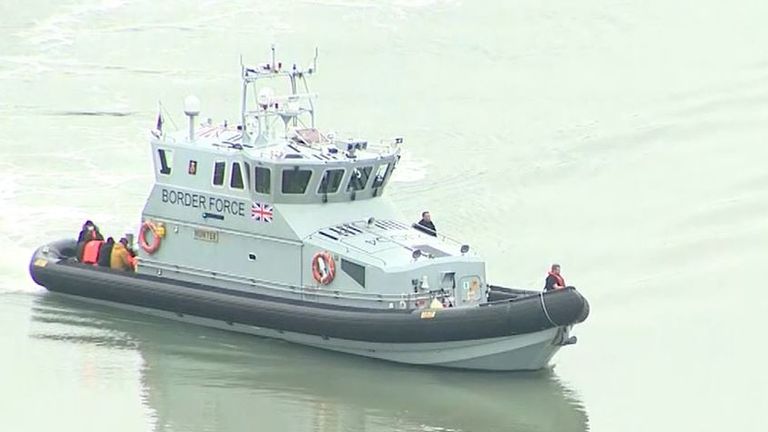A group of Conservative MPs are expected to rebel on a number of the government’s proposed asylum and immigrations reforms today.
This afternoon, the Nationality and Borders Bill – which has been branded as “barbaric” by critics – returns to the Commons having been heavily amended by peers in the House of Lords.
But ministers say the legislation – which implements a post-Brexit asylum system in the UK – will create a “firm but fair” process allowing the country to “take full control of its borders”.
Some Conservatives to rebel on offshore processing
During its passage through the Lords, peers attempted to strip out some of the Bill’s most contentious measures including a move enabling the offshoring of asylum seekers to overseas processing centres.
It is believed Priti Patel will face serious pressure on this amendment, tabled by former immigration minister Lord Kirkhope, later today – including from those on her own backbenches.
The home secretary has repeatedly said she wants to go ahead with the processing system which has previously been used by Australia.
Read more: What is the Nationality and Borders Bill?
Among those Conservatives likely to rebel on the issue include former minister Andrew Mitchell who has been outspoken in his criticism of how such a system could possibly be implemented, and fellow former minister David Davis.
The policy had been beset by problems, with Ghana, Rwanda, Albania and Denmark all refusing to host a UK processing centre.
The latest suggested location, the Ascension Island, is a UK overseas territory over 4,000 miles away.
Mr Mitchell has questioned how much such a policy would cost.
While Mr Davis has described such a move as creating “a British Guantanamo Bay”.
The Archbishop of Canterbury David Welby said that “offshoring misses the point”.
Legislation under renewed scrutiny in light of Ukraine war
Another amendment likely to cause the government some trouble is a proposal – backed by dozens of Conservative MPs – to cut the amount of time asylum seekers have to wait before they can work in the UK from 12 months to six months.
Those rebels keen on this proposal, tabled by Baroness Stroud, say lowering the duration of time individuals have to wait before being allowed to work in the UK would demonstrate that asylum seekers are not a strain on the public purse.
Former Conservative Party leader Sir Iain Duncan Smith is likely to be among those MPs backing the plan, alongside fellow Tories Steve Baker and David Simmonds.
But the government has rejected the idea, saying it would entice more people to come to the UK.
The legislation has come under renewed scrutiny in light of Russia’s invasion of Ukraine, which has sparked a humanitarian crisis as millions of civilians flee.
Amendment calls for 10,000 a year refugee target
Another proposal from Lord Kirkhope would create a statutory resettlement scheme with a target of 10,000 refugees per year.
This is attracting support from a group of the Conservative Party who are aggrieved at the Home Office’s attempt at setting up new schemes for refugees from both Afghanistan following the fall of Kabul and Ukraine after the outbreak of war.
Former minister Damian Green, who scored concessions from the department on British National (Overseas) passports, is one Conservative MP who is heavily promoting this amendment.
It is also endorsed by the Conservative chairmen of both the Defence Select Committee and the Foreign Affairs Committee.
The former, Tobias Ellwood, said: “We are in a new era of geopolitics. Tragically, refugee crises in Europe could potentially be with us for many years to come.
“We can’t respond with panic, we need a resilient resettlement policy that works hand-in-glove with our foreign policy strategic objectives.”
Meanwhile, Foreign Affairs Committee chair Tom Tugendhat added: “The difficulties Afghan faced last year show that we haven’t got a resettlement policy ready to respond to crises.
“With thousands of families still stuck in hotels, months later, we need safe and legal routes that can be flexed in response to crisis, like war in Europe or famine in the Horn of Africa.”
Patel under pressure over small boat crossings
MPs are expected to vote on a string of amendments this evening, with the numerous rebellions being co-ordinated by former chief whip and international development secretary Mr Mitchell.
It comes as Ms Patel is facing pressure to reduce the numbers trying to get to the UK by crossing the channel on boats.
After a quiet weekend, on Monday crossings resumed amid calm seas and despite poor visibility, with UK authorities rescuing or intercepting 213 people on six boats.
Read more: Nearly 60,000 set to cross English Channel in 2022
Since the start of the year, more than 2,700 people have reached the UK after navigating busy shipping lanes from France in small boats, according to data compiled by the PA news agency.
That is more than three times the amount recorded this time last year.














